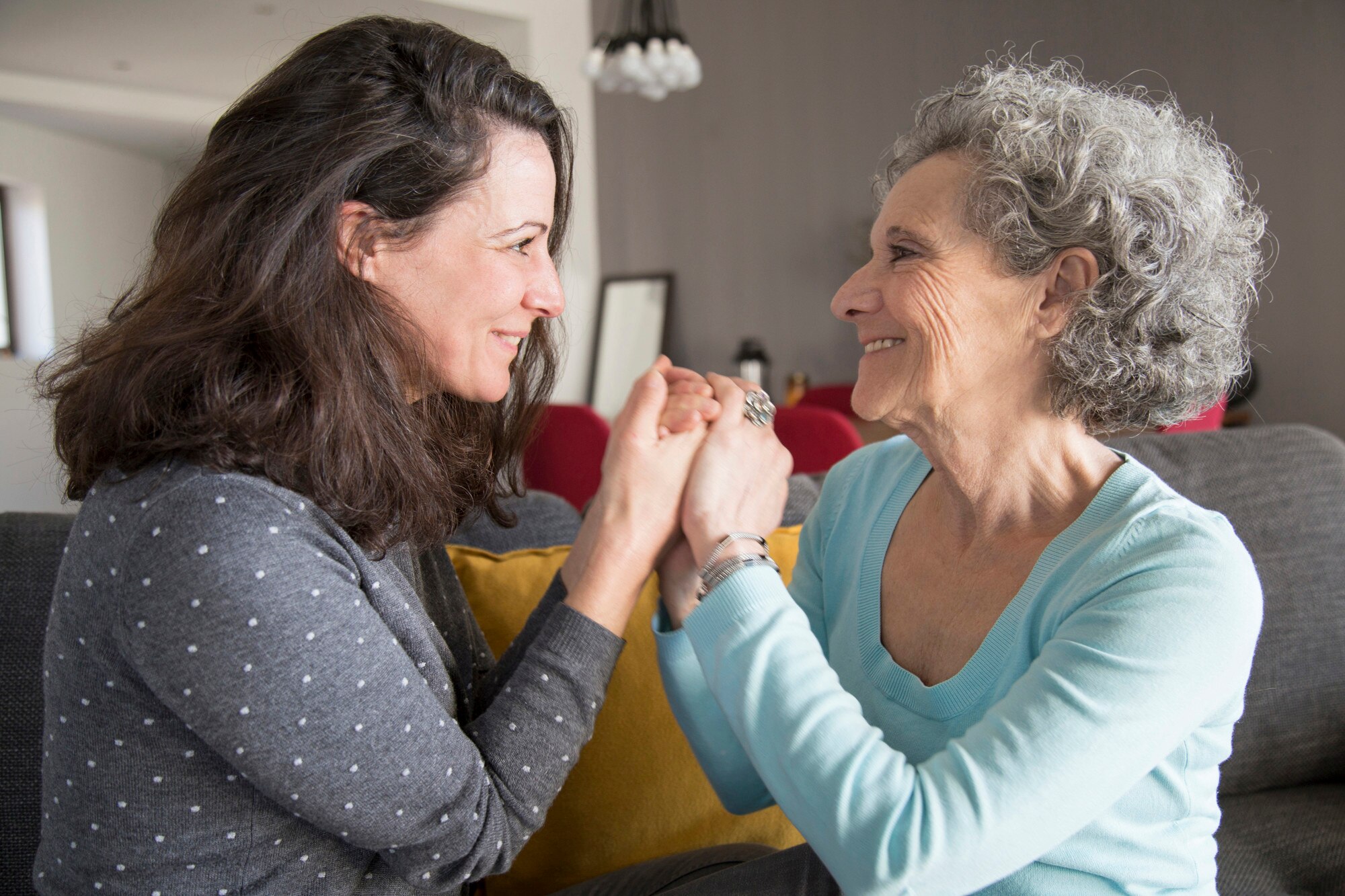Finding the right companion caregiver for your loved one is one of the most important decisions you’ll make in their care journey.
Whether you’re seeking support for an aging parent, a family member recovering from illness, or someone who needs assistance with daily activities, the caregiver you choose will become an integral part of their life.
This guide will help you navigate the interview process with potential companion caregivers, ensuring you find someone who meets your loved one’s practical needs and connects with them personally.
What is Companion Care?
Companion care offers emotional support and help with daily activities. It differs from medical home care in several ways. The focus is on quality of life and social connection. Many seniors prefer this level of care first.
Typical companion caregiver duties include:
- Engaging conversation and meaningful social interaction
- Light housekeeping and laundry assistance
- Meal planning and preparation
- Grocery shopping and running errands
- Transportation to appointments and social events
- Medication reminders (not medication administration)
- Assistance with hobbies and recreational activities
For many seniors, companion care prevents isolation and loneliness. It helps maintain independence in familiar surroundings. Good companionship also benefits mental and physical health.
Preparing for the Companion Caregiver Interview
Before meeting potential caregivers, take time to define your loved one’s needs and preferences clearly:
- Daily routines: What times do they wake up, eat meals, take medications, or enjoy certain activities?
- Special interests: What hobbies, topics, or activities bring them joy?
- Personality traits: Is your loved one introverted or extroverted? Do they prefer quiet or lively conversation?
- Cultural considerations: Are there cultural practices, foods, or traditions that are important to maintain?
- Care needs: What specific assistance do they require with daily activities?
Having this information ready will help you assess whether a potential caregiver is truly the right fit.
It is also important to define your needs clearly. Only when you know what you need can you evaluate if a caregiver fits that requirement.
Consider the following aspects:
- Required hours and schedule flexibility
- Specific tasks and assistance needed
- Important personality traits for a good match
- Special interests that might create a connection
- Cultural considerations and language requirements
- Transportation needs and driving expectations
- Budget constraints and payment arrangements
10 Essential Questions to Ask a Potential Companion Caregiver

1. Experience Questions
- “How many years have you worked as a companion caregiver?”
- “What types of clients have you worked with, and which situations were most rewarding?”
Listen for answers that demonstrate genuine care for seniors or people needing assistance, rather than simply viewing caregiving as “just a job.”
2. Skills Assessment Questions
- “Which daily assistance tasks are you most comfortable performing?”
- “Do you have specialized training in elder care or personal care companion services?”
The right caregiver should be comfortable with all the tasks your loved one needs, whether it’s light housekeeping, meal preparation, or personal care.
3. Problem-Solving Questions
- “How would you handle a situation where my loved one refuses care or assistance?”
- “Can you describe how you’ve handled a challenging caregiving situation in the past?”
These responses reveal how they manage difficult situations while maintaining dignity and respect.
Read more: Reimagining Elder Care: Innovative Approaches That Honor Independence and Dignity
4. Communication Style Questions
- “How do you typically keep family members updated about their loved one’s condition?”
- “How would you engage someone who is reluctant to participate in activities?”
Effective communication with both the client and family members is crucial for successful companion care.
5. Reliability Questions
- “What is your policy regarding scheduling and last-minute changes?”
- “How long have you typically stayed with previous clients?”
Consistency is crucial in companion care, as emotional bonds make transitions difficult.
6. Emergency Preparedness Questions
- “What would you do if you noticed concerning changes in my loved one’s condition?”
- “Are you certified in CPR or first aid?”
Even in non-medical companion care, caregivers should know how to respond to emergencies.
7. Personal Interest Questions
- “What activities do you enjoy sharing with clients?”
- “What approach do you take to help clients maintain independence while providing support?”
The “chemistry” between caregiver and client often makes the biggest difference in quality of care.
8. Values and Philosophy Questions
- “What do you find most rewarding about companion caregiving?”
- “How do you balance respecting someone’s autonomy with ensuring their safety?”
These questions reveal their caregiving philosophy and whether it aligns with your family’s values.
9. Scheduling and Availability Questions
- “What is your typical availability? Are you flexible with schedule changes?”
- “How do you handle time off, or if you’re unable to make a scheduled visit?”
Dependability is essential when someone is counting on regular companion care.
10. Background Verification Questions
- “Can you provide references from long-term care relationships?”
- “What background checks or certifications do you currently have?”
Never skip this crucial step in verifying a caregiver’s qualifications and character.
Read more: How Does Kizuna Screen and Ensure the Quality of Caregivers?
Red Flags to Watch For
During the interview process, be alert for these warning signs:
- Vague answers about experience: If a caregiver can’t provide specific examples from past work, this may indicate limited experience.
- Inflexibility: Companion care requires adapting to changing needs and preferences.
- Poor communication: A caregiver who interrupts, doesn’t listen carefully, or speaks dismissively may communicate similarly with your loved one.
- Reluctance to provide references: Quality caregivers should have previous clients or employers willing to vouch for their work.
- Focusing solely on tasks: The best companion caregivers understand that emotional connection is just as important as completing checklists.
Beyond the Interview: Steps to Ensure the Right Fit

After a promising interview, consider these additional steps:
- Arrange a trial meeting: Have the caregiver meet your loved one in a low-pressure setting to observe their interaction.
- Check references thoroughly: Contact previous clients or employers and ask specific questions about reliability, compassion, and problem-solving abilities.
- Verify credentials: Ensure any claimed certifications or training are valid.
- Trust your instincts: Sometimes the most telling indicator is how you and your loved one feel about the person.
Conclusion: Making the Right Choice for Your Loved One
Finding the right companion caregiver is a decision that impacts your loved one’s daily happiness and well-being.
After conducting thorough interviews with potential caregivers, trust both the objective information you’ve gathered and your subjective impressions.
While many families choose between hiring privately or going through an agency, consider also the benefits of a care collective model.
This innovative approach brings together carefully selected caregivers who collaborate as a team, offering:
- Built-in backup when your primary caregiver is unavailable
- Shared insights about your loved one’s evolving preferences and needs
- Ongoing support and professional development for caregivers
- Multiple compatible relationships for your loved one, reducing dependency on a single caregiver
Remember that the ideal companion caregiver will genuinely connect with your loved one, respect their autonomy, provide reliable support, communicate effectively, and adapt as needs change.
The time you invest in asking these ten essential questions pays dividends in finding someone who not only meets practical needs but also brings joy and companionship to your loved one’s life.
At Kizuna, we understand the importance of finding the perfect match between caregivers and clients.
Our care collective approach ensures personalized attention from caregivers who truly understand your loved one’s unique needs, while providing families the peace of mind that comes with professional oversight and consistent support.



